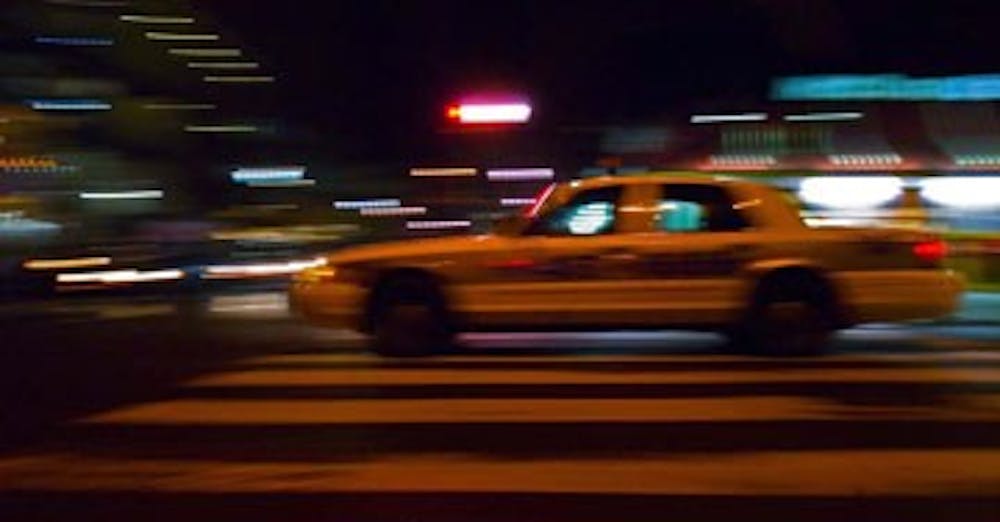
Mechanical problems and rising gas prices might make that trip to Center City a little more expensive.
According to the Philadelphia Parking Authority, a potential price increase in cab fares could raise the cost of an average cab ride from $9.15 to $9.87, a 72-cent increase.
It would be the third increase in prices in the last three years. The first occurred in April 2005 and was the first increase in 14 years. Fares increased temporarily again in July 2005, a result of rising gas prices, said Jim Ney, head of the Taxicab and Limosine Division of the PPA.
Issues complicating the debate over possible fare rises involve the VeriFone metering system tied to dispatchers city-wide. The VeriFone system includes cab meters, a GPS device to help dispatchers send cabs to their patrons as quickly as possible, and the credit card machines now mandatory in all Philadelphia cabs.
Cab drivers and owners say problems with these systems have added strain to the industry, and, combined with rising gas prices, have contributed to the possible need to raise fares.
Taxi Workers Alliance President Ronald Blount said high no-show rates caused by malfunctions with the VeriFone system force cabs into Center City to find riders.
"Fix the GPS or remove it - allow us to service 100% of the city," he said.
David Steinhardt, a College freshman who frequently took cabs last semester, said he had difficulty using credit card machines.
"If they have [a credit card machine], it needs to be a usable option," he said, citing friends who had to call for help paying fares when they discovered they couldn't pay with plastic.
Lance Haver, director of city consumer affairs, had other concerns with the technology, saying the GPS "takes away the entrepreneurial nature of the drivers," by limiting where they can drive.
When riders pay drivers with credit cards, drivers often lose out with smaller tips or no tips at all, Haver added. Credit card surcharges also take away 5 percent of every ride from cab drivers.
Pete Bartolik, a spokesman for VeriFone, disputed these concerns, saying, "people tend to leave larger tips than when they carry cash."
Also, when drivers have to charge a flat rate for rides, due to broken meters, they generate ill-will with customers.
David Arbel, president of Victory Cabs, a Philadelphia taxi company, expressed frustration with the machines, saying they "aren't working, they're an enormous headache, and we're losing money."
The Parking Authority has taken note of these concerns, demanding last week that VeriFone fix its machinery, wireless coverage and software within 30 days, as well as withstand an additional two months of scrutiny.
Bartolik also said recent problems with the system occurred when a back-up server crashed on Dec. 20, which led to network problems for 6 hours over a 33-day time period.
"Any outage is not acceptable," he said. "We're working tirelessly to fix the issue."
The Daily Pennsylvanian is an independent, student-run newspaper. Please consider making a donation to support the coverage that shapes the University. Your generosity ensures a future of strong journalism at Penn.
DonatePlease note All comments are eligible for publication in The Daily Pennsylvanian.








